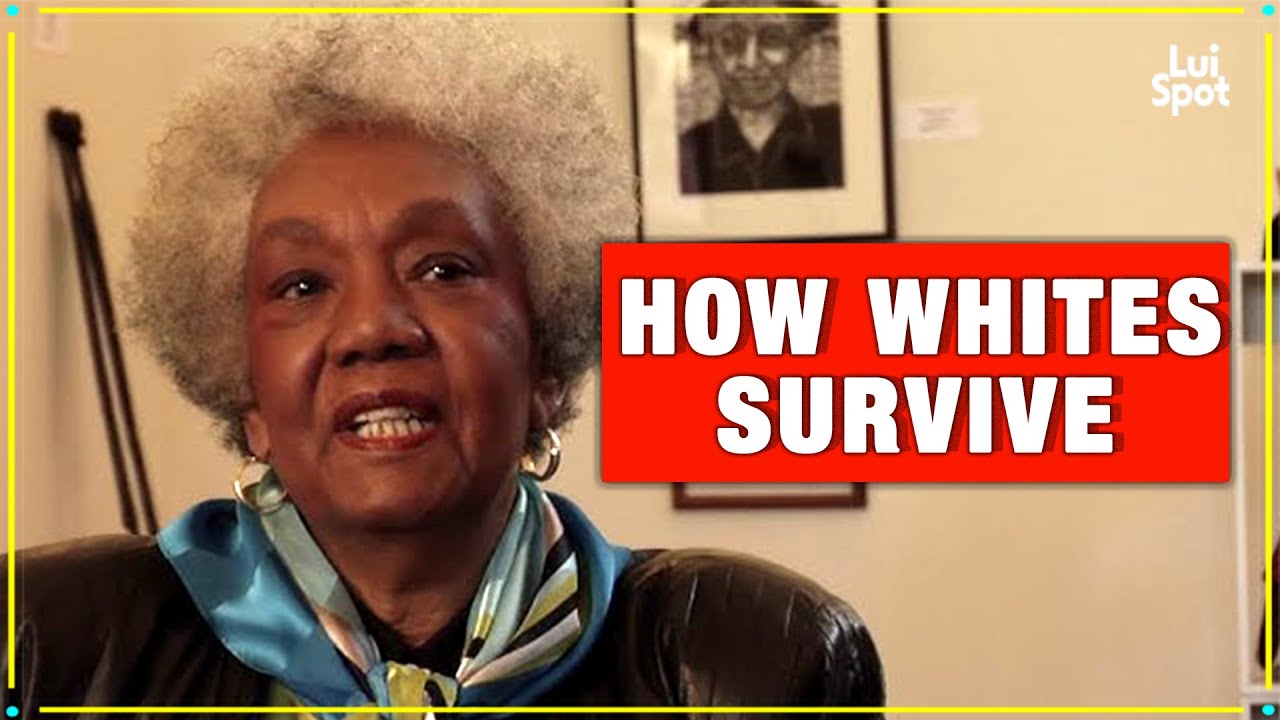The truth spoken by a true Hawaiian Wahine Heroine. Meet Haunani Kay Trask
Summary
TLDRHawaiian academic and activist Haunani-Kay Trask delivers a powerful speech addressing the historical and ongoing impact of white imperialism and racism on Native Hawaiians. She recounts the colonization of Hawaii, the suppression of Hawaiian culture, and the marginalization of Native Hawaiians in their own land. Trask also discusses the challenges she faced when speaking out against a white student's ignorance, highlighting the university's response and the broader implications for academic freedom and the fight against institutional racism.
Takeaways
- 🏝️ The speaker, Honey Cake Trask, identifies as a Native Hawaiian and discusses the historical and ongoing impact of white colonialism on her people.
- 📜 The script recounts the arrival of foreigners in Hawaii in 1778 and the subsequent introduction of diseases that led to a significant decline in the native population.
- ⛪️ In 1820, missionaries arrived with the goal of converting Native Hawaiians and taking control of their lands, contributing to cultural and societal changes.
- 🗽 The annexation of Hawaii by the United States in 1898 is described as an act of aggression that disregarded the wishes of the Hawaiian people.
- 🏫 The script criticizes the University of Hawaii for perpetuating white hegemony and for its lack of Native Hawaiian representation among its faculty.
- 📢 Trask responds to a student's complaint about the use of the term 'Haole' by explaining its historical context and the privilege of white people in Hawaii.
- 💬 The speaker addresses accusations of racism and defends her right to express her views on the treatment of Native Hawaiians by white settlers.
- 🏛️ The university's response to Trask's public statements is criticized as an infringement on academic freedom and an attempt to silence a Native Hawaiian voice.
- 🗳️ The Faculty Senate's decision to investigate Trask is seen as an overstep and an example of the university's failure to protect free speech and academic freedom.
- 🌐 The script highlights the broader issue of white privilege and racism not only in Hawaii but also within the United States and its colonial history.
Q & A
Who is the speaker in the transcript?
-The speaker is Haunani-Kay Trask, a Native Hawaiian scholar and activist.
What is Haunani-Kay Trask's heritage?
-Trask is a descendant of the Pele lineage through her mother and the Kohaku, McCully lineage through her father.
What does Trask discuss as the beginning of the story she tells?
-Trask begins her story with the genocide of the native Hawaiian people and the arrival of foreigners who brought diseases and exploitative ideologies.
What role do missionaries play in Trask's narrative?
-In Trask's narrative, missionaries are portrayed as aggressive agents of cultural and religious imperialism who contributed to the dispossession and conversion of the Hawaiian people.
What historical event does Trask reference when discussing the overthrow of the Hawaiian government?
-Trask references the 1893 invasion and occupation of Hawaii by American marines, which led to the overthrow of the Hawaiian monarchy.
What does Trask argue is the impact of American colonialism on the Hawaiian people?
-Trask argues that American colonialism has led to a decline in the Hawaiian population, ongoing land dispossession, and the destruction of Hawaiian culture and self-determination.
What is the controversy surrounding Joey Carter mentioned in the transcript?
-Joey Carter, a white male student, wrote a letter to the student newspaper complaining about what he perceived as racist language used against white people, particularly the term 'haole'. Trask responded by educating him on the historical context and meaning of the term.
What was the reaction of the University of Hawaii to Trask's response to Joey Carter?
-The University of Hawaii's reaction included an investigation into Trask's statements, with some faculty and administrators accusing her of racism and creating a hostile environment, despite her defense of academic freedom and the right to critique colonialism.
What does Trask suggest is the underlying fear of white people in Hawaii when confronted with discussions of racism and colonialism?
-Trask suggests that white people in Hawaii fear discussions of racism and colonialism because they are aware of the historical violence and exploitation committed by whites against native peoples, and they fear the justified resentment and demands for justice from those they have oppressed.
How does Trask describe the situation at the University of Hawaii in terms of racial representation and power dynamics?
-Trask describes the University of Hawaii as having a predominantly white faculty despite a diverse student body, indicating institutional racism. She argues that white voices are protected and amplified, while her critique of colonialism and racism is met with attempts to silence her.
Outlines

هذا القسم متوفر فقط للمشتركين. يرجى الترقية للوصول إلى هذه الميزة.
قم بالترقية الآنMindmap

هذا القسم متوفر فقط للمشتركين. يرجى الترقية للوصول إلى هذه الميزة.
قم بالترقية الآنKeywords

هذا القسم متوفر فقط للمشتركين. يرجى الترقية للوصول إلى هذه الميزة.
قم بالترقية الآنHighlights

هذا القسم متوفر فقط للمشتركين. يرجى الترقية للوصول إلى هذه الميزة.
قم بالترقية الآنTranscripts

هذا القسم متوفر فقط للمشتركين. يرجى الترقية للوصول إلى هذه الميزة.
قم بالترقية الآنتصفح المزيد من مقاطع الفيديو ذات الصلة

Mark Zuckerberg sued native Hawaiians for their own land | AJ+

Seeing White | John Biewen | TEDxCharlottesville

why whites say black people genetics is bad - dr. frances cress

Meet the native Hawaiians fighting U.S. occupation | AJ+

‘What To The Slave Is The Fourth Of July?’: Descendants Read Frederick Douglass' Speech | NPR

Why is white supremacy growing in the United States? | The Bottom Line
5.0 / 5 (0 votes)
